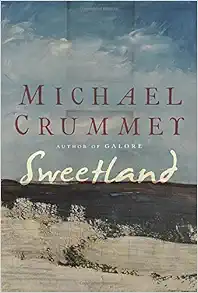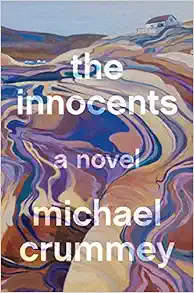
Description
National BestsellerA Globe and Mail Best Book of 2014Winner of the 2014 CBC Bookie Award for Fiction Winner of thexa0Newfoundland & Labrador Book Award for Fiction Finalist for the 2014 Governor General’s Award for FictionNominated for the International Dublin Literary Award "Crummey's latest novel left me with a sadness I have trouble translating into words. . . . His graceful prose slowly weaves the reader into the fabric of the community. . . . [and he writes] into reality the small islands that have been left out of official accounts, omitted from commemorative maps." —The Toronto Review of Books "Unlike most novels steeped in rural nostalgia, it gets a kick out of contemporary life. . . . But the elimination of an entire community, and what it represents, is deeply felt. Through its crusty protagonist, Crummey’s shrewd, absorbing novel tells us how rich a life can be, even when experienced in the narrowest of physical confines." — Kirkus Reviews , starred review"[A] moving story." ― The New York Times Book Review "While this may be a modern tale of survival in an inhospitable landscape and economy, Crummey’s secondary character sketches are a poignant tribute to resilient generations past. . . . Both humorous and downright heartbreaking." — Atlantic Books Today "This book compacts all of Michael Crummey’s considerable versatility as a writer: his spare lyricism as a poet; his breadth of observation as a novelist; his deftness with historical fiction and magic realism; his interest in memory; his rootedness, his soaring imagination and his humour."xa0— The Telegram (St. John’s)"In tone, mood and atmosphere, the novel recalls Newfoundland-born David Blackwood's ghostly etchings that depict so powerfully and so evocatively a vanishing way of life. . . . But more important, Sweetland is its own creation—one that immerses readers in a lost, lovingly remembered and attentively rendered world, recalling the unrecoverable past, a tale of myth and magic, of memory and loss." — The Record (Kitchener-Waterloo)"Crummey's an almost magical writer: his characters and places form up inside my head, and won’t leave. . . . The biggest letdown for me is when I’ve run out of Crummey. On top of that, the premise for Sweetland —the internal conflict of an isolated Newfoundland town where residents have to vote unanimously to collect government payments to leave—is an intriguing one, to say the least. In his hands, it will surely rock. I look forward to a slow, delightful read."xa0—Russell Wangersky, The Globe and Mail " Sweetland might be Michael Crummey's best novel, even though such earlier work as River Thieves, The Wreckage and Galore has garnered both literary awards and international acclaim. The book has a singular appeal, one which will live in the minds of readers long after its story is concluded. . . . The book is a gem." — The Observer (Sarnia)xa0"[Crummey] does both man and place justice: Moses is a memorably strong-willed character, whose manner of thinking and speaking are dying out. The novel also conveys the way that a sense of place is the product of relationships—among the living, with the dead, and, in Moses’s case, arising from intimate connections to land and sea." — Publishers Weekly "Once again, Michael Crummey has written one hell of a book. . . . It's an enthralling read, hilarious and heartbreaking by turns, populated by characters who seem, on first glimpse, to be wilfully eccentric, but emerge as realistic and grounded, taking what control they can of their lives. . . . Sweetland is a thing of beauty, one of the finest novels we are likely to encounter this year. It demonstrates, as the best fiction does (and as Crummey’s novels always have) that the past is always with us, and that contemporary events are history embodied and in motion." — The Vancouver Sun "For a writer who always explores the same theme—loss, both accidental and inevitable, coupled with a resilience that surprises the characters themselves—Michael Crummey never repeats himself. . . . Crummey’s finest novel yet reaches its mythic and mesmerizing heights only after the others depart, leaving Moses . . . bracing for a bitter winter both seasonal and personal." — Maclean’s "A small-town tale brimming with unconventional characters turns into a survival storyxa0of catastrophic loneliness mixed with bittersweet memories."xa0— Chatelaine "Crummey’s novel in no way resembles a Hollywood treatment of this recognizable storyline…xa0 It is in Crummey’s slow teasing out of Moses Sweetland’s personal history that the narrative derives its strength, depth, and humanity. It is also through this process that the novel’s protagonist – and its readers – are reminded… that ‘no man is an island,’ no matter the lengths he might take to set himself apart." — Quill & Quire "Seductive, supple and haunting. . . . Sweetland is a wistful eulogy for a dying way of life."xa0— Toronto Star "Remarkable . . . The conflict between the old and new ways, memory and reality are ongoing themes in the novel, strengthened by Crummey's knack for seamlessly mixing past and present."xa0— Calgary Herald "Like any very good novel, Sweetland continues to resonate just offstage, in its own dream chamber, long after first reading, calling for a second performance. This reader, for one, has gratefully accepted the invitation." — Winnipeg Free Press " Sweetland is a thing of beauty, one of the finest novels we are likely to encounter this year. It demonstrates, as the best fiction does (and as Crummey’s novels always have) that the past is always with us, and that contemporary events are history embodied and in motion." — National Post "Crummey’s novel is all of a piece, its apparent simplicity of style, like that of its protagonist and his setting, concealing a primordial power. Much of the book’s beauty lies in its finely wrought portrait of this last, exemplary islander, who—in the manner of Judah, the mute whale-born man inxa0Galore—sustains those around him in ways so unobtrusive and gracious that detecting them can be like discovering buried treasure." — The Globe and Mail MICHAEL CRUMMEY is the author of a memoir, Newfoundland: Journey into a Lost Nation , three books of poetry including Arguments with Gravity , winner of the Writers' Alliance of Newfoundland and Labrador Book Award for Poetry, and a book of short stories Flesh & Blood . His first novel, River Thieves , was a finalist for the 2001 Scotiabank Giller Prize; and his second novel The Wreckage was a national bestseller and a finalist for the Rogers Writers' Trust Fiction Prize. His third novel, Galore , won the Commonwealth Writers' Prize (Canada and the Caribbean) and was a finalist for the Governor General's Literary Award. He lives in St. John's, Newfoundland.
Features & Highlights
- From the award-winning, bestselling author of
- Galore
- comes another unforgettable novel. By turns darkly comic and heartbreakingly sad,
- Sweetland
- is a deeply suspenseful story about one man's struggles against the forces of nature and the ruins of memory.
- For twelve generations, when the fish were plentiful and when they all-but disappeared, the inhabitants of this remote island in Newfoundland have lived and died together. Now, in the second decade of the 21st century, they are facing resettlement, and each has been offered a generous compensation package to leave. But the money is offered with a proviso: everyone has to go; the government won't be responsible for one crazy coot who chooses to stay alone on an island. That coot is Moses Sweetland. Motivated in part by a sense of history and belonging, haunted by memories of the short and lonely time he spent away from his home as a younger man, and concerned that his somewhat eccentric great-nephew will wilt on the mainland, Moses refuses to leave. But in the face of determined, sometimes violent, opposition from his family and his friends, Sweetland is eventually swayed to sign on to the government's plan. Then a tragic accident prompts him to fake his own death and stay on the deserted island. As he manages a desperately diminishing food supply, and battles against the ravages of weather, Sweetland finds himself in the company of the vibrant ghosts of the former islanders, whose porch lights still seem to turn on at night.





